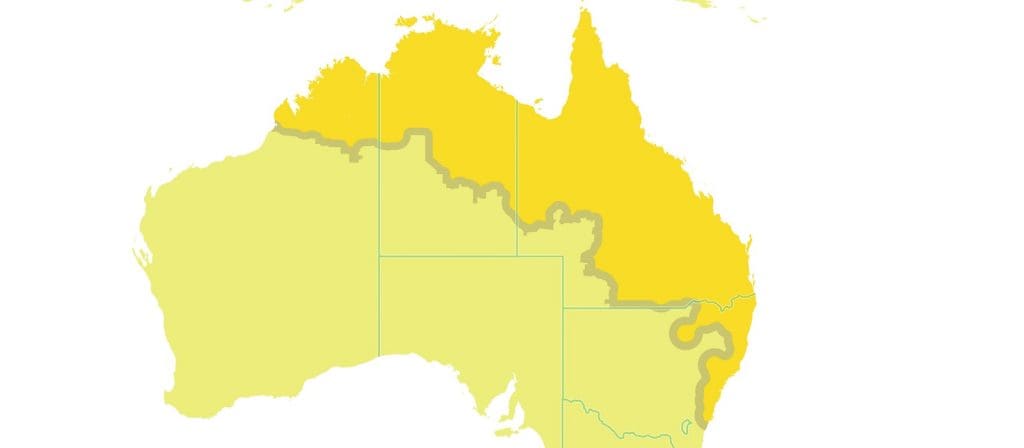
Australia’s bluetongue virus transmission zone has been extended.
LIVESTOCK breeders have been advised to consult licensed exporters to confirm eligibility for target markets or advice on alternatives, after Australia’s bluetongue virus transmission zone was extended.
The bluetongue virus (BTV) transmission zone has been extended approximately 100 kilometres south and inland following detection of BTV in cattle in the Shoalhaven area during routine testing for the National Arbovirus Monitoring Program (NAMP).
NSW Department of Primary Industries principal veterinary virologist, Deborah Finlaison, has advised that the BTV transmission zone now extends south from Nowra to Bateman’s Bay.
“Previously in the free zone, Braidwood and Goulburn districts are now in the buffer area, which immediately surrounds the transmission zone.
“These changes mean properties located within any part of the BTV transmission zone, including buffer areas where BTV activity is still possible, are not eligible to export live animals to some countries,” Dr Finlaison said.
“Livestock producers should check with their exporter or the Department of Agriculture, Water and the Environment to confirm the importing country’s requirements.”
Sheep Central has been told that Australian livestock exporters should work with state and territory governments to confirm farms meet the importing country requirements for specific diseases of concern to the importing country. The government then provides the certification for the animals for export based on the information provided by the state and territory government veterinarians.
For major breeder sheep markets like Russia and China, it is not possible to export directly from farms situated in the bluetongue virus transmission zone. However, almost all animals will be eligible for export to countries sensitive about bluetongue virus if they spend time in areas of Australia where bluetongue virus transmission does not occur. That period can vary from 60 days to six months (for China), and up to 12 months for other markets. These animals must also meet an importing country’s other requirements including pre-export quarantine isolation.
Producers can also confirm the current status of their property by viewing up-to-date BTV zone maps online, namp.animalhealthaustralia.com.au
A region must have no occurrence of BTV detected by NAMP testing for at least two years to be eligible to be in the BTV transmission-free zone.
South East Local Land Services district veterinarian, Evelyn Walker, said BTV was last found in the Shoalhaven in 2017 and the region was returned to the transmission-free zone in August 2019.
“The south coast area received high rainfall during February this year and that led to large populations of midges, which are vectors of BTV.
“There is no cause for concern regarding the health of local sheep and cattle which have been exposed to BTV, as the strains of BTV in NSW are considered to have a very low likelihood of causing disease,” Ms Walker said.
Producers with any questions or concerns about livestock health and BTV should contact their private veterinarian or Local Land Services district veterinarian on 1300 795 299.



HAVE YOUR SAY